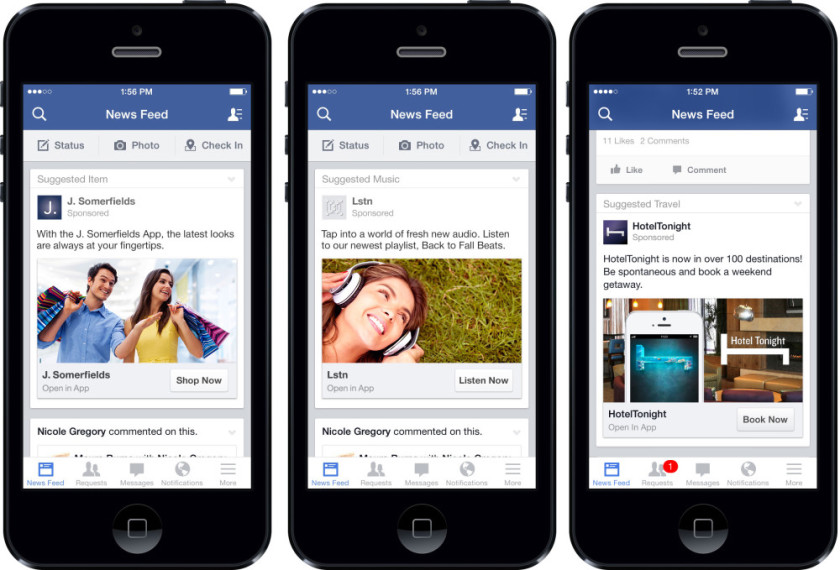Facebook has announced the launch of a mobile ad network that may cut into the Google ad market. Although focused primarily on mobile devices, the Facebook ad network, if successful, could expand further into the market that drives the web giant. Facebook’s expansion into serving ads on 3rd party apps and mobile sites should calm fears about the its ability to monetize.

Facebook’s mobile ad network is designed to take full advantage of information freely offered on Facebook profiles, says techcrunch.com. The new ad network would drill into Facebook profiles and extract data such as ‘liked’ TV shows or bands. The threat to Google in all of this is the level of detail available to Facebook ad users. For example Facebook ads could be targeted not only to age brackets and genders, but also to those who have recently changed their personal information. Imagine serving ads for chocolate ice-cream to 15-23 year old women who have recently changed their relationship status from “In a relationship” to “single”…
The level of sophistication in the new Facebook ad network allows Facebook to charge more for ad space. When advertisers look at marketing strategies, there is one thing that’s most important: Return on Investment (ROI). With a Google ad, you may be able to target somebody who has searched for a dating site, however you know nothing about the reason why they’re there. The new Facebook ad network is likely to hit target markets with more specificity.
When it comes to serving ads online, the name of the game is data. So the question becomes, who knows more about the customer: Facebook or Google? The answer isn’t as simple as just looking at the offerings of the two companies. Different customers have different online behavior. Depending on the customer, Facebook usage may be sparse or non-existent.
It’s important for marketers to know that when decisions are being made on which company to serve mobile ads through, online habits of their target market must first be identified. Facebook ads served on third party websites may seem to reach a more exact demographic, but all of that depends on the demographic relationship with Facebook. If your demographic is 50-65-year-old men, for example, it’s unlikely that they’ve recently liked favorite TV shows or updated their relationship status. In which case your ads through Facebook would only reach a small segment of your target market, and would likely be more expensive. Not very promising for ROI.


